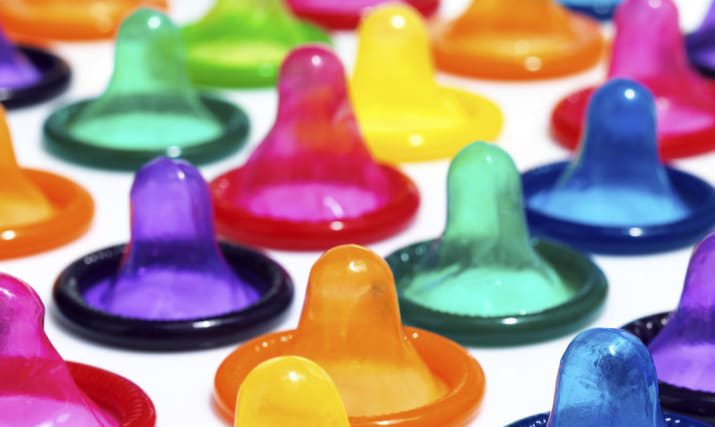A new report has shown that additional 564 million condoms are needed annually if Nigeria is to cover 90 per cent of its adult population.
The report, based on a survey, is titled ‘Condom accessibility and use in Nigeria’ and produced by NOIpolls, in partnership with the National Agency for the Control of AIDS (NACA) and AIDS HealthCare Foundation (AHF).
The report was released to mark the International Condom Day (ICD), which is observed annually on February 13 through Valentine’s Day, February 14, to promote safer sex awareness, by encouraging people to use condoms.
In a statement made available to PREMIUM TIMES on Saturday, the Program Manager of AHF, Taofeek Adeleye, said a total of 1.15 billion condoms will help the country to achieve 90 per cent coverage.
He, however, said only 587million condoms are currently available for use in the country.
“The gap between current condom use (587million) and total need (1.15 billion) to achieve ninety per cent coverage is 564 million condoms annually,” he said.
“The condom gap shows disparity across the target populations. FSW has the lowest (10 per cent) unmet needs with improvement among MSM (57 per cent) and individuals with multiple partners (55 per cent) Sero-discordant couples record the widest gap of 90 per cent.”
Mr Adeleye also explained that male condoms are readily available than female condoms.
“We also have some females that are not even aware of female condoms. As an organisation, we are looking at issues around male and female condoms, and we are also intensifying on condom education promotion,” he said.
protesters
Using condoms
Speaking at a press briefing on Friday, the Director-General of the National Agency for the Control of AIDS (NACA) Gambo Aliyu, said condoms play a vital role in the country’s HIV response strategy if used correctly and consistently.
He noted that the agency is keen on promoting faithfulness to one partner.
He said that if people are faithful to their partners, the use of condoms to prevent HIV and other sexually transmitted diseases (STDs) will be unnecessary.
“Today’s event, since its first commemoration in 2009 has been part of the various innovative ways of promoting the use of condoms and reminding sexually active people that correct use of condoms can prevent sexually transmitted infections like HIV as well as unwanted pregnancy,” he said.
He urged Nigerians to avoid unprotected sex which often leads to unwanted pregnancies and increased risk of acquiring sexually transmitted infections including HIV/AIDS.
He noted that the goal of NACA remains to scale up community efforts to provide national access to prevention, treatment, care and support services.
The group said the COVID-19 pandemic has impacted many aspects of our lives, and access to condoms was unfortunately not spared from the effects of the pandemic.
It said obstacles created by the pandemic have further reinforced the necessity and importance of advocacy to prioritize access to condoms.
“Lockdowns and restrictions due to COVID-19 have been an ongoing threat to condom access, particularly in countries where stockouts and other barriers already made it difficult for people to get condoms,” said AHF Chief of Global Advocacy and Policy Terri Ford.
The group reiterated its commitment to ensuring people everywhere have access to free or affordable condoms.
“We have always placed condom access high on our priority list,” said AHF President Michael Weinstein.
‘‘Across our programme states of: Abuja, Kogi, Anambra, Nasarawa, Akwa Ibom, Benue and Cross River state, AHF-Nigeria shall be providing free HIV testing and promote healthy lifestyles with the year’s theme of the ICD, “Always in Fashion”, while we distribute free condoms to Nigerians, Echey Ijezie, AHF-Nigeria Country Programme Director said.
The group appealed to governments and public health institutions to ensure that people have the tools to protect themselves and their loved ones.







